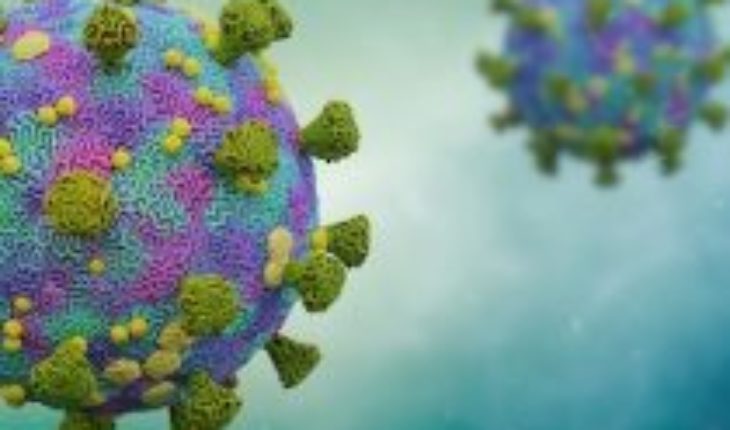
I won’t talk about the virus here as a pandemic, because I don’t know. Instead, I do want to place the historical opportunity that he activates. Within a few months, the virus has transparently revealed to us the crossroads, tension or contradiction that we have lived for several decades. An inevitable crossroads in the long-running human drift. The virus, in a “mysterious” way, as the rupture milestones in the processes of profound and long-lasting changes in history often occur, has accelerated and will further accelerate the enormous complexity of the present, with no one knowing what is to come. The future is being deployed in the present by our emotions, actions, dreams and desires, which come from memory.
In several articles I have written that the most pressing tension of our present as History, which we know since the 60s of the twentieth century, was that if we continue to grow economically and demographically – in that clumsy mirage of the unlimited – we would deepen the decoupling of the current way of life of ecosystems and the biosphere with catastrophic results for humans (environmental ins andting); but – and here is the crossroads – in case the blind locomotive of growth has been abruptly stopped, as analytical reason and ethics have been suggested, crises and social explosions could ensue with also catastrophic results (social insusibility).
Today, climate change through, no one in their righteous judgment disputes the gravity of the ecocide in which we live. Now, moreover, the virus has come abruptly to expose us, without filter, the other derived from the current vital crossroads: social insusibility. Lúcidally, Edgar Morín, theorist of complexity, wrote that the virus has revealed to us that “action does not necessarily obey intent, can be diverted, deviated from its intention and even return as a boomerang to hit the one who has triggered it. This is what Professor Eric Caumes predicts: in the end it is political reactions to this emerging virus that will lead to a global economic crisis… with an ecological benefit. The ultimate paradox of complexity: economic evil could lead to ecological improvement. At what cost?”
Today it is a common place in the media to insist that we start an economic-social crisis that is the likes of the worst of the 20th century. However, the comparison siso that neither in the great depression of the 29th nor the second great war of the north were so many subjects involved in the same global economic “metabolism”, nor that yesterday there was no such crisis of environmental sustainability as today’s. Hence the lethality of the virus could be very mild compared to the violent echoes of the potential social crisis. Therefore, those who decided to stop abruptly for a few months the machine of economic growth, today uneasy invite them to recover the “new normal”, which for them is simply to continue to grow in productivism and consumerism, more prohibitions, as if nothing happened here. Even doubtful, they will try to alleviate the legal limits that today’s minimum environmental standards impose on them. But will it be so easy and possible, after an experience of such intensity?
Everything indicates that hard times are coming. Of course, as in every crisis, an opportunity opens up. In this case, for sustainability, which will mean advancing a profound change of the current way of life.
As I said, today it is academic consensus that climate change will generate broad and unprecedented socio-environmental crises and mass migrations with their impending aftermath of social conflicts over resources in various regions of the planet. And now that the virus has led us to stop the fossil fuel energy machine and the unused productivism and consumerism, we can’t even imagine what will happen in our current and exhausted way of life. What tension and structural decoupling between the “world socio-economic machine” and the biosphere! This is the greatest evidence, after viruses, that we are witnessing a contradiction between the exorbitant growth of the old modern mode of production (the system-world that Immanuel Wallerstein told us about) and the inability of the planetary bio-system to withstand the damage that that progressively infers to it.
Let us carry out the exercise of complementing the description of this vital tension, bringing to the present one of The most suggestive thesis of Karl Marx: certain production relationships of an ancient era can become a hindrance to the expansion of new productive forces and new production relations (a new way of organizing economic-social and cultural living).
If we look at production relationships in three domains. One, the relationships of appropriation and distribution of wealth. Two, the motives and values that move humans in the production of goods and services. And three, the relationships between subjects (and classes) in markets and in any economic interaction, it is unequivocal that the old productive relations of the modern era are hindering the new production relationships and the development of the new ecological productive forces that humanity already has at hand to overcome the sustainability crisis.
Today, new eco-techno-effective productive forces are operating, a matrix of a potential new postmodern economy. For example, there is the knowledge and ability to multiply and decentralize clean energy generation. For example, we have the technology to move towards the dematerialization of the economy, through the recycling and reorganization of the already transformed raw material circulating in the world. For example, this is the new deed in companies B, which at least problematize profit and guide their operation with a focus on the social and environmental.
However, this emerging eco-techno-effective production capacity is hampered by production relationships typical of an older era; relationships still based on principles and dogmas such as appropriation and accumulation, overproduction and consumerism, maximizing profit (which is not the same as making a profit), de-criterion greater cost-opportunity in the short term, non-redistribution and unilateral competition.
The main challenge for the viruses, both in political and personal management, will be to enhance the emerging expansion-creativity of the new eco-productive forces. And it will put emerging production relationships at the center, for example, the revaluation of collaboration, the deepening of redistribution and equity, reasonable benefits – which do not destroy the other or the environment – and the thrill of respect and living in voluntary simplicity. If we do, then we could deepen a potential for transformation capable of preserving a new relationship between culture and biosphere. After viruses, I repeat, we have an opportunity to co-build a new cultural path, which will obviously happen with huge tensions. How we solve this vital historical crossroads is the way our children will access the future.
In recent decades, in the face of expansive evidence of the worst omens of climate change and biodiversity loss, countercultural social movements have multiplied around the world, as have some governments and some companies, in their own way, tried to tackle the eco-crisis. At European level, the Zeitgeist Movement (spirit of the time) proposes to move from a profit economy to a resource economy. In Latin America, networks of academics and activists from different cultures, coinciding with the look of the Northern Zeitgeist, have proposed the need for a Good Living based on a collaborative economy and the sustainability of resources. In India and China, there is also a cultural altering activism that challenges the process of modernization driven by their governments.
I have used the expression “extraordinarily complex tension” time and time again, for the challenge of sustainability requires innovative looks, collaboration in the inevitable conflict, of radicality and remeaura. In such a challenge there are no “pure” and “impure”, there are only sustainable and unsustainable practices. It is essential an economic, political, social and cultural management that in a process progress towards a shift towards sustainability in all the affairs of the Polis, the result of which will be the inescapable and gradual economic, social and emotional transformations.
In such a challenging context, we are all called to facilitate the pro-sustainability synergy between individual intelligences and the collective intelligence of organizations. That’s the crucial challenge of the time. Deploying that will, emotion and intelligence is an action and responsibility shared among all noble subjects involved in governments, political parties, businesses and citizen organizations. This is required by living in an interdependent world, where neither alone nor separated can resolve these tensions.
To better understand this, let me have a brief digression on what history is. We are the subjects, in action and localized knowledge who make history, animated by our needs, dreams, emotions, desires and sufferings, and by powerful wills, whether altruistic or selfish. The result escapes our hands, although we are included in the result. Whether we want to or not, we do history. And we are always responsible, by action or omission, for the history we are doing. That’s why history is freedom: we co-build it, we make it open, making it emerge.
The present as History is a network of activities and conversations, in collaboration and conflict, among those of us who live intertwined in a dynamic “moment – process” in time and in space, always heirs to a memory and naked in the face of the future. So historic is the present that the becoming of each subject and of humanity is only a succession of present ephemeral ones. We exist in the present, for past and future are involved in the present. The present ephemeral ones are nourished by the intense traces left by the memory of a past that was once present, while at the same time we deploy the practices, emotions, reasons and desires with which we will inevitably build a future that may become our present. In that sense, the temporal distinction between past-present-future is only operational, because past-present-future are united, in-network-given in a continuum.
Let us now return to the opportunity open by the virus of co-building a new sustainable way of life, after the expansive madness, of separativity, with an ego existentially alienated from the network of life, a look so typical of a Western modernity that in a few centuries it expanded into the world with its aftermath of creation and destruction.
Those who have reflected on the future of history agree that in a change of era synchronously there are trends that point to interrelated transformations. One, in the organization and in the way we understand politics and the other. Two, in the way of organizing and living the economy and technique. Three, in the way we organize socially. And four, in the emergence of a radical change in the conception of the world, in our emotional veil in acting in the world. And while these processes of change occur synchronously, the pattern or the transverse spirit is the mutation of the human gaze. And the gaze of a community changes when the ancient gaze becomes unsustainable. That’s how human history has always become. In this regard, the current evidence is overwhelming. The old modern gaze, dissociated, has us living successive ecological crises and socio-environmental conflicts, amen of viruses included, otherwise not alien to the environmental crisis, as some scientists have reiterated these days. In short, the old gaze changes when it is unable to deal with a new crisis and its consequent challenges; which today are the issues associated with intergenerational sustainability.
In the 60s of the twentieth century the old gaze began to be shaken from its foundations by new sensitivities. That’s where we go to the current change of historical era and paradigmatic transition (I usually use the metaphor of a neo-renaissance to refer to the prodigious decade).
Faced with the unequivocal evidence of environmental destruction, those years emerge the sensitivities and environmental actions that re-connect, in a kind of neo pantheism and neo-mysticism, with a vibration of loving respect for nature that we are also. The anti-patriarchal gesture of women, in socio-existential rebellion, no longer went only after suffrage, but in search of comprehensive respect. The different cultures demanded respect for their specific looks and varied colors, after enduring centuries of ethnocides. It was also respect what was demanded by gay men and women, after centuries of being condemned with contempt and punished to shame and intense emotional exclusion. These sensitivities brought to life countercultural movements, which although first on the shores of the social system, in a few decades have been seducing more and more subjects, until today fortunately they are already installed in the new generations.
Although different authors nominate in different ways the current change of gaze, they coincide in a similar pattern of meaning: from a mentally representative, alienated and instrumental anthropocentrism, we would move to a new integrative gaze, which makes the human involved in the network of life and the Universe. One example, Francisco Varela told us about an ontological turn: “of a “being” in the world we went on to understand that we constitute the world”. We live in a network with all the material-bio-partner diversity in the world.
Anyway, these strange days have opened up an opportunity to hold us accountable, once again, for our behaviors and emotions with their inevitable impact on others and others, human and non-human. An opportunity to travel intimately from Ego-ism to Echo, which includes our presence.
What’s to come won’t be easy. If these have been strange days, the years to come will be even harder. The most challenged will be the new generations, to whom unfortunately we give them an already exhausted world, which sometimes even seems without a future. In my eyes sadness is inevitable when I observe our young people, among disoriented, sometimes animosity, others angry. Yet all we have to do is revitalise hope. A cold and serene renunciation of the old normality is the hope of a warm and passionate openness to feel, think and act on new emotions, actions, desires and dreams of sustainability. Perhaps, excited by a new look, in that hope lies the last option to co-create another possible world.
The content poured into this opinion column is the sole responsibility of its author, and does not necessarily reflect the editorial line or position of El Mostrador.





